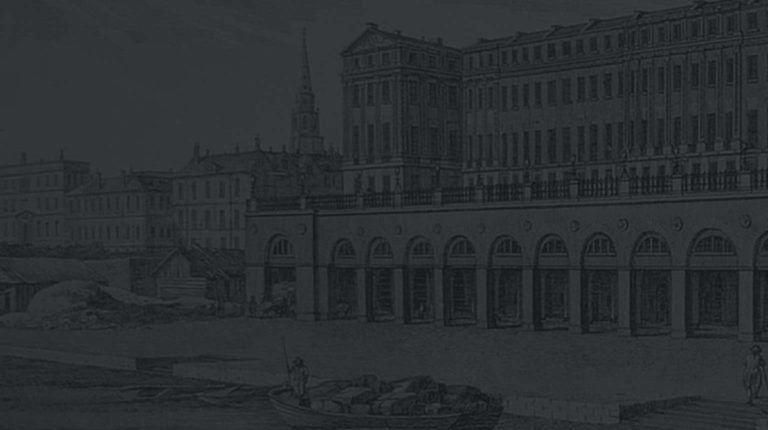It was in November of 1899, in the midst of the Boer War that an armoured train departed Estcourt in Natal on a reconnaissance mission to report on the Boer advance at Ladysmith, a few dozen miles to the north.
The Second Anglo-Boer War had been raging for just a month, fought between the British Empire and the two independent Boer republics of the Orange Free State and the South African Republic (ZAR). The Boer forces held Ladysmith, and the British held Estcourt. Between the two was the town of Colenso – which was to become the scene of a famous and bloody battle.
The armoured train journeys were dreaded by the British, who lived in (a very real) fear of the tracks being blown up at any moment. On the 15th November the train departed Estcourt with a company of Royal Dublin Fusiliers and a half-company of Durban Light Infantry. It also contained the war correspondent of the Morning Post – a young man of 25 who went by the name of Winston Churchill.
It was to be the journey that so many of the soldiers had dreaded.
Two miles short of their destination the train encountered a force of Boer soldiers who opened fire. The driver increased speed to escape, but the Boers had foreseen such an action and the train almost immediately pounded into a boulder that had been strategically placed across the tracks and derailed. Eighty soldiers and one war correspondent had little choice but to surrender.
The train was ordered on its ill-fated mission by Colonel Long, who would subsequently play a prominent and ultimately disastrous role in the Battle of Colenso just a few weeks later.
At the battle, Long was in command of the heavy guns that formed such a vital part of the British artillery. He was a strong advocate of the Prussian strategy of moving the heavy guns ahead of the infantry – a tactic that would prove to be a big mistake.
On the 15th December the Battle of Colenso began, with the guns proceeding at the vanguard. Within minutes of advancing under extreme heavy fire most of the horses were dead and two thirds of the gunners were dead or wounded. Long was urged to abandon the guns, and in a pique of stubbornness was reported to have said “Abandon be damned. We never abandon the guns.”
And so they didn’t, a move that was to prove fatal. Long himself was injured, and eventually just two gunners remained. When one of the two remaining was hit, the other made a hasty retreat. With the guns unmanned and the bodies of the gunners strewn across the battlefield, Long lapsed into delirium: “ah, my gunners. My gunners are splendid. Just look at them.”
With the guns sitting out in the open, volunteers were called to step forward and retrieve them. Major Prince Christian Victor (the grandson of Queen Victoria), Captain Schofield, Captain Congreve and Lieutenant Roberts heeded the call (all would subsequently receive the Victoria Cross for their actions). The four officers took five teams of horses across the open ground. Two of the teams were brought down almost immediately, with Victor, Congreve and Roberts wounded.
The remaining teams somehow managed to reach the guns, hitched them up and began to return to cover.
One of that team was Driver G. Rockall of the 66th Battery Royal Field Artillery, who was awarded for his extreme bravery under the most challenging of circumstances the Distinguished Conduct Medal, now available to buy at our May auctions in London.
The Exceptional Colesnso, VC Action, Distinguished Conduct Medal Group of 5 to Driver G.Rockall of the 66th Battery Royal Field Artillery. Estimate: £5,000-7,000
The Battle of Colenso resulted in a spectacular defeat for the British – so much so that all the medals awarded for the Battle make no reference to Colenso at all. British casualties numbered 1,125 – the Boer losses by comparison were extremely light. Such figures point to the unmitigated failure on the part of the Generals – a fact that was no doubt not lost on a young Morning Post reporter who had escaped from Boer captivity just 3 days before the battle.
Had that young reporter been able to demonstrate the military prowess he would later display to victorious effect at Colenso there might well have been a different outcome. And yet, who is to say that the ill-fated events on that South African Battlefield did not shape the thinking of an impressionable Churchill? Perhaps, had the Battle of Colenso unfolded differently, the lessons learned might have produced an equally different outcome some forty years later on a beach in Northern France…..
To see the full Military Medals selection for this auction, click here:
To view the full catalogue, click here.
Want to see your items or collections right here? Baldwin’s is now taking consignments for our 2016-17 auction seasons. You can contact us directly by clicking here, or alternatively call Seth Freeman on +44 (0)20 7930 9808 or email seth@baldwin.co.uk


